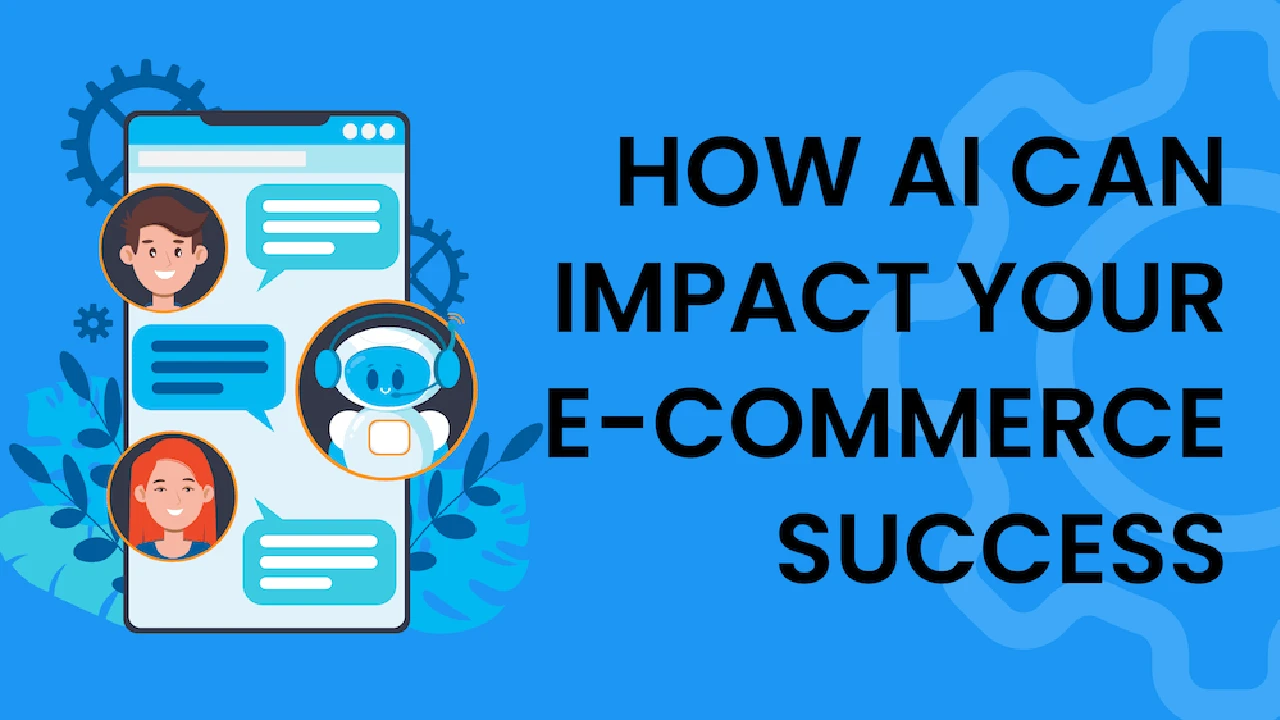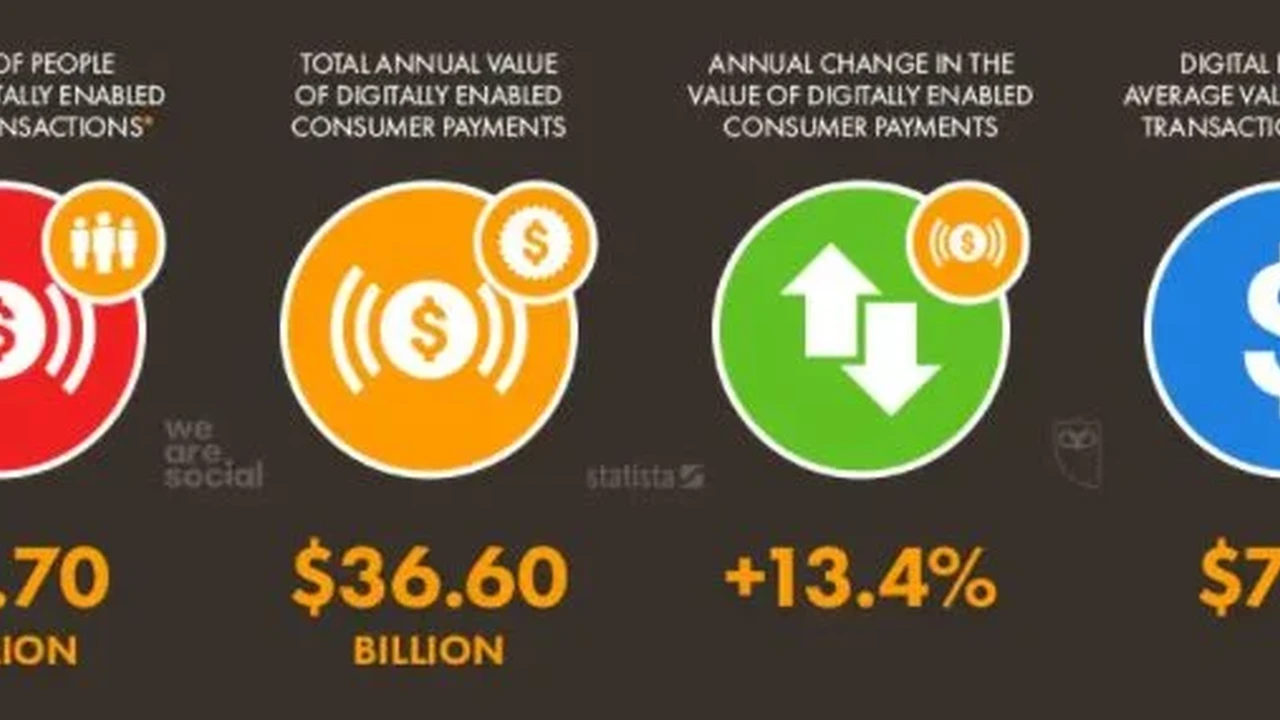The Impact of AI on E-commerce in SEA & Mexico
Sample meta description.

Introduction: AI Reshaping the E-commerce Landscape in Southeast Asia & Mexico
Hey everyone! Let's dive into how Artificial Intelligence (AI) is completely changing the game for e-commerce in Southeast Asia (SEA) and Mexico. Forget the old ways; AI is here to personalize experiences, streamline operations, and boost sales like never before. We're talking about a revolution, folks!
Personalized Shopping Experiences with AI: Know Your Customer Better Than They Know Themselves
Imagine walking into a store where the shelves magically rearrange themselves to show you exactly what you want. That's the power of AI-driven personalization in e-commerce. AI algorithms analyze mountains of data – browsing history, purchase patterns, even social media activity – to understand each customer's unique preferences and needs. This allows businesses to offer hyper-personalized product recommendations, targeted marketing campaigns, and customized shopping experiences.
For example, think about a shopper in Jakarta browsing for sneakers on a popular Indonesian e-commerce platform. AI can analyze their past purchases, search queries, and even their preferred brands on Instagram to suggest specific sneaker models that they’re likely to buy. This level of personalization not only increases sales but also fosters customer loyalty.
AI-Powered Chatbots: 24/7 Customer Support That Doesn't Sleep (Or Need Coffee)
Customer service is crucial, right? AI chatbots are stepping up to the plate, providing instant support 24/7. These aren’t your grandma’s clunky chatbots; they’re smart, responsive, and can handle a wide range of inquiries, from order tracking to product information. They free up human agents to focus on more complex issues, improving overall customer satisfaction and reducing operational costs.
Consider a customer in Mexico City struggling to navigate a complicated return policy on a major e-commerce site. An AI chatbot can guide them through the process step-by-step, answering their questions in real-time and resolving their issue quickly and efficiently. This not only saves the customer time and frustration but also prevents negative reviews and potential customer churn.
AI in Inventory Management: Predicting Demand and Minimizing Waste
Holding too much inventory? Running out of stock too often? AI can help! AI-powered inventory management systems analyze historical sales data, seasonal trends, and even external factors like weather patterns to predict demand with incredible accuracy. This allows businesses to optimize their inventory levels, minimize waste, and ensure they always have the right products in stock to meet customer demand.
Imagine a small business in Vietnam selling handcrafted jewelry online. AI can analyze sales data from previous years to predict demand for specific items during the Tet holiday season. This allows the business to stock up on popular items and avoid running out of stock, maximizing sales and profitability during this crucial period.
AI for Fraud Detection: Keeping Your Business and Customers Safe
Online fraud is a serious threat to e-commerce businesses. AI algorithms can analyze transaction data in real-time to identify suspicious patterns and flag potentially fraudulent activities. This helps protect businesses and customers from financial losses and maintain trust in the e-commerce ecosystem.
For instance, if a customer in the Philippines suddenly starts making unusually large purchases using a credit card that hasn't been used in months, an AI fraud detection system can flag the transaction and alert the business to investigate further. This helps prevent fraudulent purchases and protects the customer from identity theft.
AI-Driven Marketing: Reaching the Right Customers with the Right Message at the Right Time
Forget blasting out generic marketing messages to everyone. AI allows you to target your marketing efforts with laser precision. AI algorithms analyze customer data to identify specific segments with shared interests and behaviors. This allows you to create highly targeted marketing campaigns that resonate with each segment, increasing engagement and conversions.
Think about a beauty brand in Thailand launching a new line of skincare products. AI can analyze customer data to identify specific segments who are interested in anti-aging products or products for sensitive skin. The brand can then create targeted marketing campaigns that highlight the specific benefits of their new products for each segment, maximizing the impact of their marketing efforts.
Product Recommendations: AI Leading the Way
Okay, let's talk specific products that leverage AI and are making waves in SEA and Mexico. We'll look at a few examples, their use cases, comparisons, and approximate pricing.
1. Albert.ai: The AI Marketing Platform
Use Case: Albert.ai is used for automating and optimizing digital marketing campaigns. It analyzes data to identify the best channels, audiences, and creative assets to drive conversions. Think of it as your automated marketing guru.
Comparison: While other platforms like HubSpot offer marketing automation, Albert.ai stands out with its AI-driven decision-making. It's less about setting up rules and more about letting the AI learn and adapt.
Pricing: Albert.ai's pricing is usually custom and based on the scope of services, but expect to pay a premium – potentially starting from $10,000 per month for larger enterprises.
2. Salesforce Einstein: AI-Powered CRM
Use Case: Einstein integrates AI into Salesforce's CRM platform, providing insights and recommendations to sales, service, and marketing teams. It can predict sales opportunities, personalize customer interactions, and automate tasks.
Comparison: Compared to other CRM systems like Zoho CRM, Einstein offers a deeper level of AI integration. It's not just about managing customer data; it's about using AI to understand and anticipate customer needs.
Pricing: Salesforce Einstein is an add-on to Salesforce's existing plans. Pricing varies depending on the features and usage, but expect to pay an additional cost per user per month.
3. Google Cloud AI Platform: Building Custom AI Solutions
Use Case: This platform lets businesses build and deploy their own AI models using Google's infrastructure and tools. It's perfect for companies with specific AI needs that aren't met by off-the-shelf solutions.
Comparison: Compared to other cloud AI platforms like AWS AI, Google Cloud AI Platform is known for its ease of use and integration with Google's other services. It's a good choice for businesses already using Google Cloud.
Pricing: Google Cloud AI Platform uses a pay-as-you-go pricing model. You only pay for the resources you use, making it a cost-effective option for businesses of all sizes.
4. Particular Audience: AI-Powered Product Discovery
Use Case: Particular Audience helps e-commerce sites personalize product recommendations. It learns from user behavior and suggests products they are likely to buy, boosting sales and customer engagement.
Comparison: While other recommendation engines rely on basic algorithms, Particular Audience uses AI to understand user intent and context. This leads to more relevant and effective recommendations.
Pricing: The pricing is based on the number of website visitors and the features used. Smaller businesses can expect to pay a monthly fee starting from a few hundred dollars.
5. ViSenze: Visual Search and AI-Powered Recommendations
Use Case: ViSenze specializes in visual search and AI-powered recommendations for e-commerce. Users can upload an image of a product they want, and ViSenze will find similar items on the e-commerce site. It also powers personalized product recommendations based on visual preferences.
Comparison: Unlike text-based search, ViSenze uses visual AI to understand product attributes. This is particularly useful for fashion, home decor, and other visually driven categories.
Pricing: ViSenze's pricing is typically custom and based on the volume of visual searches and recommendations. It's usually geared towards larger e-commerce businesses.
6. Optimove: CRM Marketing Platform
Use Case: Optimove uses AI to personalize CRM marketing campaigns. It analyzes customer data to identify segments, predict behavior, and deliver targeted messages across multiple channels.
Comparison: Compared to other CRM marketing platforms, Optimove focuses on AI-driven customer lifecycle management. It helps businesses nurture customer relationships and increase lifetime value.
Pricing: Optimove's pricing is typically custom and based on the size of the customer database and the features used. It's usually geared towards mid-sized to large businesses.
Final Thoughts: The Future is AI-Powered
AI is no longer a futuristic fantasy; it's a present-day reality that's transforming e-commerce in SEA and Mexico. By embracing AI technologies, businesses can unlock new levels of personalization, efficiency, and profitability. So, get on board and prepare for an AI-powered future!
:max_bytes(150000):strip_icc()/277019-baked-pork-chops-with-cream-of-mushroom-soup-DDMFS-beauty-4x3-BG-7505-5762b731cf30447d9cbbbbbf387beafa.jpg)






